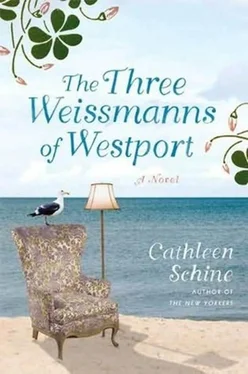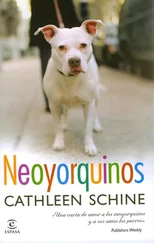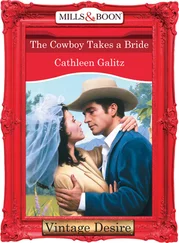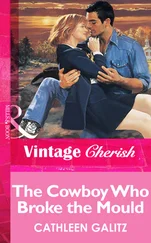When the Weissmanns returned from Palm Springs at the beginning of January, the snow had just come and gone and the ground was oozing. Betty decided to take up online poker in an attempt to supplement the family income. Annie and Miranda had forgiven if not forgotten what each had said to the other and were on precariously good terms, but Annie tried to spend as much time as possible at the library. Even there, however, she felt the need to escape. When she could no longer stand the part of her job that required her to speak to board members and ask bibliophilic rich people for money, she would retreat to the library's attic and putter. She told the staff she was looking for artifacts, and she did discover a discolored letter from George Washington in a frame with cracked glass, as well as the first volume of the two-volume first American edition of Sense and Sensibility. But the main reason she dug through piles of broken chairs and abandoned space heaters was to be alone. It had become an aching, physical need. The beach in Westport, where once she had felt so free, now seemed to her to be teeming with the presence of other human beings: they were behind her in their houses, they were across Long Island Sound in other houses, they were a mile away on I-95, whizzing past her in cars. They flew above her, back and forth, in planes in the sky. They were even buried beneath her, or close enough, deep and silent, in the earth. Wherever she went, they followed. They spoke to her on telephones and wrote to her on computers. They sang from radios and hailed cabs and demanded she hold the elevator. It was not their fault, of course, they were only doing what people were meant to do, yet she found herself despising them.
But in the attic, there were just the things people had discarded, not the people themselves. A bulky electric typewriter. A framed diploma from Barnard College for Mildred Peacock Winship, 1927. Engravings, photographs-it was like picking up seashells. She was alone, blissfully alone. Who was Mildred Peacock Winship? Perhaps she had been a devoted member of the library's staff, a middle-aged unmarried person who typed and filed, collected her meager paycheck, and went home to a big frame house in the Bronx to make supper for her aging parents. Perhaps she was a trustee who had bequeathed to the library thousands of dollars as well as her treasured editions of Emerson and Hawthorne. Annie thought vaguely that she should find out. At the same time, she blessed Mildred Peacock Winship, for, whoever she had been and whatever she had done, she was now, blissfully, absent.
The attic was safe. It was quiet and remote. Like me, Annie thought. She was walking to the subway after a particularly tiring board meeting.
"Aren't you just so bwack and bwown?" a woman cooed to a dog tied to a parking meter.
When Annie emerged in Grand Central, a homeless man holding a battered coffee cup said, "Hello there, beautiful lady," and she was wondering whether to smile politely without making eye contact or just hurry past, when she realized he was talking to the woman behind her. On the train, she walked through the first couple of cars looking for a seat facing forward. She spotted a likely prospect-the back of a single well-groomed female head sticking up from the three-person bench-but when she got up to the female head and was about to heave her bag onto the middle seat, she saw it was occupied by a small child.
There was an awkward moment when, even as she drew back her bag, determined to avoid what could only be a very loud and very dull young companion on an evening when she wanted peace and solitude, she caught the mother's eye and wondered if she had already somehow committed herself to join the duo and if it would now be insulting to this doubtless doting parent to continue on her way. But even as she quickly and decisively decided in favor of insult over boredom and annoyance, the child in question spoke.
"Annie!"
And she looked down at the boy, focused, and recognized Henry.
Annie put out her arms, and Henry jumped to his feet and, standing unsteadily on his seat, gave her a hug. She saw the mother's face over his head. Henry's mother. It was instantly and unquestionably apparent. Not just the full cheeks or the set of the eyes. But that look, that proprietary mother look. "Oh, you must be Henry's mother," Annie said quickly, holding a hand out. "I'm Annie Weissmann. A friend from Westport."
Henry was looking around. "Randa?" he asked.
"Are you Randa?" the mother asked. "He talks about you quite a bit. I'm Leanne."
Annie sat down and explained that Randa was her sister, Miranda.
"Miranda's at home," she said to Henry.
The woman was blond, her hair short and straight, her narrow eyes a faded blue. She wore no makeup, and Annie could see at once why she didn't bother with it-her skin glowed, smooth as a child's. She seemed a little older than Kit, however. Well, Annie thought, returning her friendly smile, the man ran true to form in the age department, that seemed clear.
Henry climbed over his mother and pressed his face against the window. He stared at the passing lights and sang a jumbled version of the alphabet.
"You were in Africa?" Annie said, trying to make conversation that somehow did not touch on Kit Maybank.
"We're staying with Aunt Charlotte now. She needs some looking after. And the house is huge."
"Yes, I've heard that," Annie said, then fell into an uncomfortable silence, for how else would she have heard that except from Kit?
Henry unglued himself from the window to watch the conductor punch holes in his mother's ticket but not in Annie's monthly pass. Annie explained that she was a commuter, then explained what a commuter was.
"You go on the train every day?" he asked, his eyes wide with awe and envy.
"Two times."
" We saw dinosaurs," he said a little defensively.
After that, conversation flagged until they neared the station at Westport.
"We don't get off until Greens Farms," Leanne said as Annie started putting on her coat.
"Right. Of course. Your aunt's house is so much closer to the Greens Farms station. I like that station. And the little old-fashioned post office there. Kind of my favorite place in Westport."
Leanne laughed.
"I want to go to Randa's house," Henry said.
"You never met Aunt Charlotte, did you?" asked Leanne.
"I want to go to Randa's house."
Annie shook her head. "No. Never did."
"No. She and Kit are not exactly on friendly terms, so you wouldn't have."
"But you're obviously on good terms with her."
"Oh yes. She's a bit of a gorgon, but we love her, don't we, Henry?"
Henry sucked silently on his fist.
No wonder Kit had lived in the run-down boathouse. But what had he done to alienate his aunt? What had his ex-wife done to keep the confidence of her in-law? Annie wished she had time to pursue this interesting conversation. Of course, it was none of her business. But gossip so rarely was.
Henry continued to want to go to Randa's house, now in a loud singsong chant. Annie wondered if she should respond. She knew Miranda would be overjoyed to see Henry. But perhaps Henry's mother would not be overjoyed to drop her son off at the home of her ex's ex. It all seemed very complicated.
"I want-"
"Okay, okay," his mother said, clapping a hand over Henry's mouth. "Listen," she added suddenly to Annie. "You'll all come for tea. Yes. Perfect." She released Henry's mouth and dug in her purse. "Here." She thrust her card at Annie with a dazzling smile and an almost military sense of authority. "It's settled."
Annie laughed. Leanne reminded her a little of Miranda.
While Annie was rumbling home on the commuter train to Westport, Frederick was rumbling toward New York on the Amtrak train from Boston. Amber and Crystal were not with him. They had taken his car a week earlier. Amber was accompanying Crystal to Great Barrington, where they were house-sitting (Frederick could not bear to pronounce "home-sitting" even silently in his thoughts), then they would both continue on to the city to meet Frederick. They were all staying with Felicity and Joe in Joe's big apartment on Central Park West, although Felicity didn't know it. Amber and Crystal were going to be a surprise. Frederick chuckled, imagining his sister's face. They could all go to hell, he decided. He asked very little in life, really. Just to sit in his office and listen to the sea and write his books. Why was there always so much fuss?
Читать дальше












